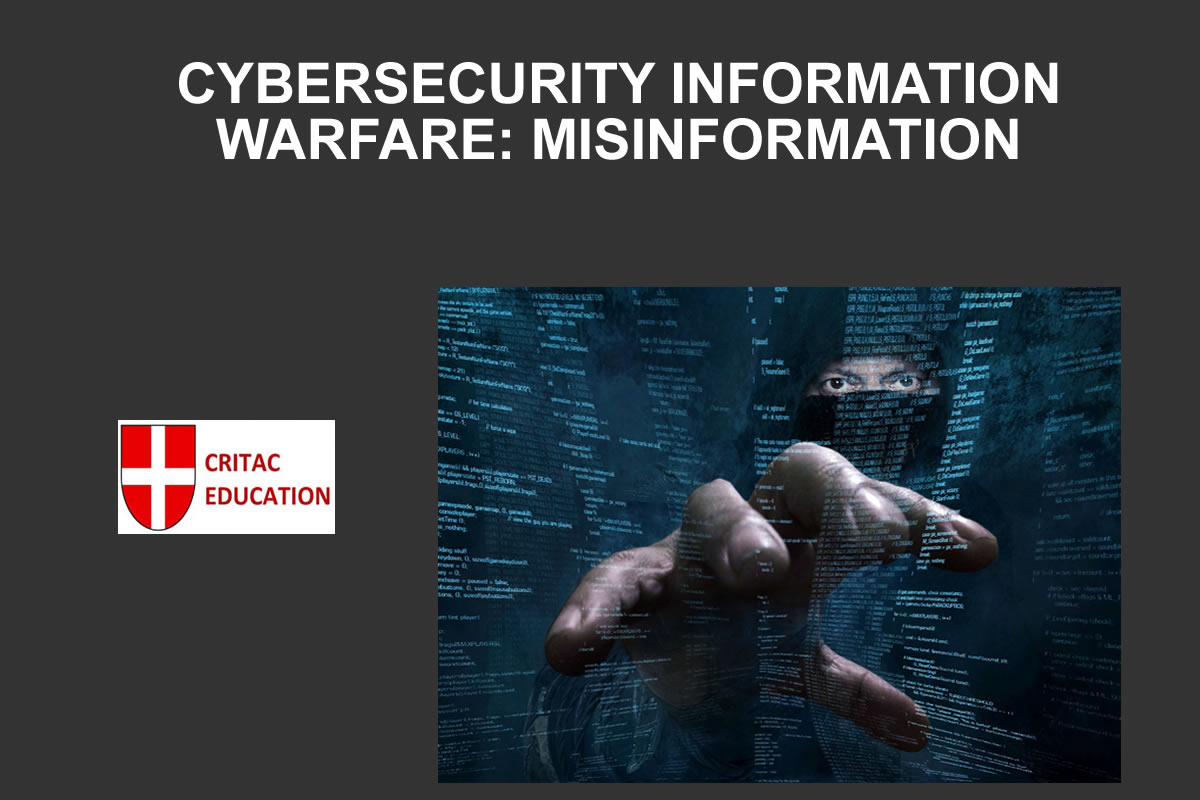Embark on an enlightening journey through the intricate landscape of information warfare and the pervasive influence of misinformation. This course, spanning 25 modules, offers a profound exploration of historical contexts, psychological nuances, and contemporary challenges in the world of misinformation.
Course Highlights:
-
Defining Information Warfare:
- Delve into the essence of information warfare and its historical significance.
- Understand the role of misinformation as a critical element in shaping the information warfare landscape.
-
Types of Misinformation:
- Differentiate between misinformation and disinformation, exploring the spectrum and understanding harmful consequences.
- Analyze real-world case studies highlighting the impact of misinformation on diverse domains.
-
Psychology of Misinformation:
- Explore cognitive biases influencing misinformation, studying the spread of false health and political information.
- Investigate social factors contributing to the dissemination of misinformation, with case studies on COVID-19 and more.
-
Information Ecosystem:
- Examine the flow of information, vulnerabilities in the ecosystem, and the role of information sources and gatekeepers.
- Analyze case studies on misinformation during natural disasters and its impact on public health.
-
Social Media and Misinformation:
- Investigate the role of social media in misinformation, dissecting algorithms, echo chambers, and virality.
- Explore case studies on infodemics during the COVID-19 pandemic and political polarization.
-
The Spread of Falsehoods:
- Understand how misinformation gains traction, analyzing case studies such as the Pizzagate conspiracy theory.
- Examine online manipulation techniques and notable instances like the Cambridge Analytica and Facebook data breach.
-
Misinformation in Politics and Health:
- Scrutinize the role of misinformation in political campaigns, studying instances like Russian interference and the Brexit referendum.
- Explore the consequences of misinformation in health, analyzing case studies on measles outbreaks and the anti-vaccine movement.
-
Misinformation in Science, Technology, and Economics:
- Investigate misinformation in science, climate change denial, and pseudoscience.
- Examine the economic incentives for disseminating false information and its impact on financial markets.
-
Combating Misinformation:
- Study fact-checking, verification, media literacy, and educational initiatives.
- Explore the role of technology companies in responding to and combatting misinformation.
-
Government, Ethics, and Accountability:
- Analyze government regulation, international efforts, and ethical dilemmas in countering misinformation.
- Study case studies such as the Cambridge Analytica data scandal and misinformation in the 2020 U.S. presidential election.
-
Misinformation and Social Movements:
- Explore the role of misinformation in social movements, understanding activism in the digital age.
- Analyze case studies illustrating the intersection of misinformation and social causes.
-
The Economics of Misinformation and National Security:
- Understand the economic aspects of misinformation, including its impact on ad revenue and stock markets.
- Investigate the role of misinformation in geopolitical conflicts, cyberattacks, and threats to national security.
-
Historical and Contemporary Case Studies:
- Examine historical instances of misinformation, learning lessons from propaganda in World War II.
- Analyze contemporary examples, including cyber attacks, disinformation, and their impact on global affairs.
-
AI in Misinformation and Future Trends:
- Explore the role of AI in detecting and generating misinformation, considering ethical implications.
- Anticipate emerging trends, future threats, and prepare for AI-driven disinformation campaigns.
-
Global Perspectives on Misinformation:
- Study misinformation in diverse cultural and political contexts, examining international collaborative efforts.
- Explore challenges, opportunities, and case studies such as misinformation in India and global initiatives like COVAX.
-
Conclusion and Recommendations:
- Summarize key takeaways, policy recommendations, and the ongoing battle against misinformation.
- Conclude with insights into the ever-evolving landscape of information warfare and strategies for the future.
Who this course is for: Professionals in information technology, media, policy-making, journalism, and anyone seeking a comprehensive understanding of the multifaceted world of information warfare and misinformation.
Embark on this intellectual exploration to become adept at navigating the complexities of information warfare and misinformation, contributing to a more informed and resilient global society.
